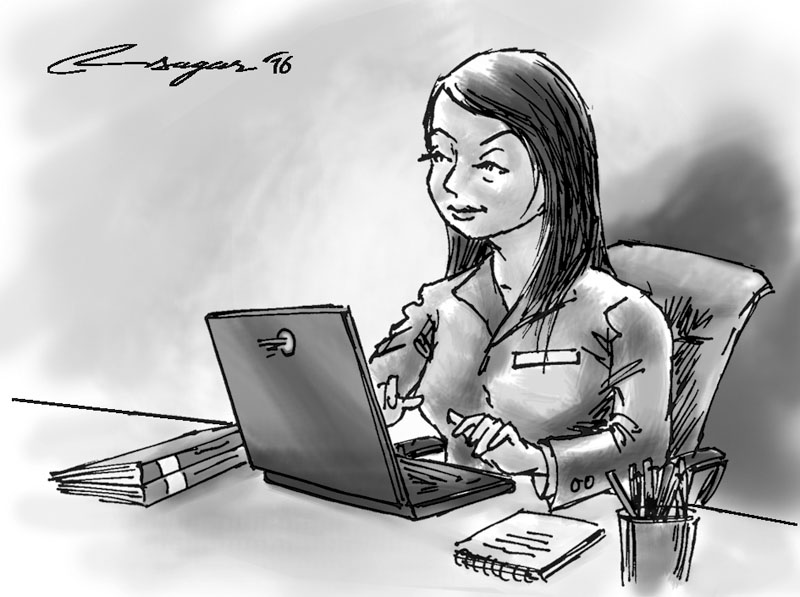Leadership and leaders: What the nation needs
It seems our identity of humanity and nationality is in peril. Thus, the nation demands a leader who can give the nation social harmony and unity, and a leader who can address the voices of the people from all the communities of the nation in an equal manner
The days are very difficult for Nepal now. On the one side, the challenges are growing from internal conflicts, particularly regarding the demands of some Madhes-based parties, and on the other side, rising confrontation with India is also responsible for this. It has been months since Nepal faced difficulties due to the scarcity of fuel and other daily essential items since the so-called blockade was imposed on Nepal. Whatever the situation may be this is not something new for Nepal, but we can perceive now that the situation these days is different from the past. This is not only the various irritants between India and Nepal, but it is also the output of dissatisfaction of the so-called Madhesi and Paharia groups while practicing their rights. The only way to deal with this undesirable situation is for the various leaders of the many political parties of Nepal to grant the reasonable demands of all groups. To achieve this the solution has to be found in a diplomatic and rational way. The leaders should realize that there is no other way out.
It was a day of November 2013 in Tachikawa City, Japan where I was present during the EROPA international conference. I had queried Yoshitaka Shinda, the former minister of internal affairs and communication of Japan about what could a developing nation like Nepal learn from a developed world like Japan? As he is well versed in critical political scenario of Nepal at present, he affirmed that firstly that the state should respect the voice and demands of the people and also create the required policies and implement them well. It does not mean necessarily that the nation possesses the physical infrastructures or economy. For the development process to be successful it is required that there should be an equal participation of the people and equal opportunity for the people in all the sectors of the state. Japan was in the same place as Nepal is now 50 years ago.
There were many kinds of discrimination even between the ‘castes’. There were even communities which were avoiding being educated. He further added that the Japanese had researched a lot; and at last we reached the conclusion that the roles of people’s participation and devotion towards their nation were the main tools for a nation’s development.
The case is similar to what happened in South Africa where Nelson Mandela served 27 years in prison and became the president of that nation. There were enormous challenges Mandela had to face and surmount to manage the conflict of discrimination that prevailed there between the black native Africans and white people. Mandela not only dealt successfully with the conflict and discrimination between the white and black people there, but he also achieved fraternity between all the people of the nation which was an achievement that ought to be hailed as he united the nation and achieved peace there. He was honored with the Nobel Peace Prize he rightfully deserved.
In the case of Nepal, there is a miserable scenario of crisis after the earthquake of April 25 and several aftershocks after that. The days are getting increasingly difficult for the victims of the earthquake. The state and victims are suffering much and are in dire need of resettlement and rehabilitation in the affected areas. Moreover, what is happening now in the Madhes is the agitations which have led to more despair for the entire nation. More than 50 people have been killed in the violence that occurred there. This is very saddening. It has raised the questions about the value and meaning of humanity amongst the people. In this regard, the Nepali media also do not seem serious about their social responsibility.
After ratifying the human rights declaration of the United Nations, Nepal has provisions for human rights through the constitution, acts and regulations. But some of the issues concerning human rights like ‘Chhaupadi’, ‘contamination’ and woman violence cannot be removed entirely. But the state seems serious in other issues relating to human rights. The reservation, empowerment for disadvantaged groups, equal development opportunity, respect and support for all religions and cultures for social harmony and for social development are some examples. Moreover, we have now Mrs Bidhya Devi Bhandari as the President of Nepal. Having a woman leader in the top position for the first time in Nepal is a great achievement regarding implementing woman empowerment and social inclusion policy in practice.
Decades have passed since the Unites Nations declared the human rights. The declaration was for peace, prosperity and human development in the world. The main person who can play a vital role in implementing these policies is a rational and devoted leadership. For a nation to prosper it is needed that we have a rational leader, a leader who is in attachment to not only one territory or community but to the whole nation.
It seems our identity of humanity and nationality is in peril. Thus, the nation demands a leader who can give the nation social harmony and unity, and a leader who can address the voices of the people from all the communities of the nation in an equal manner.






